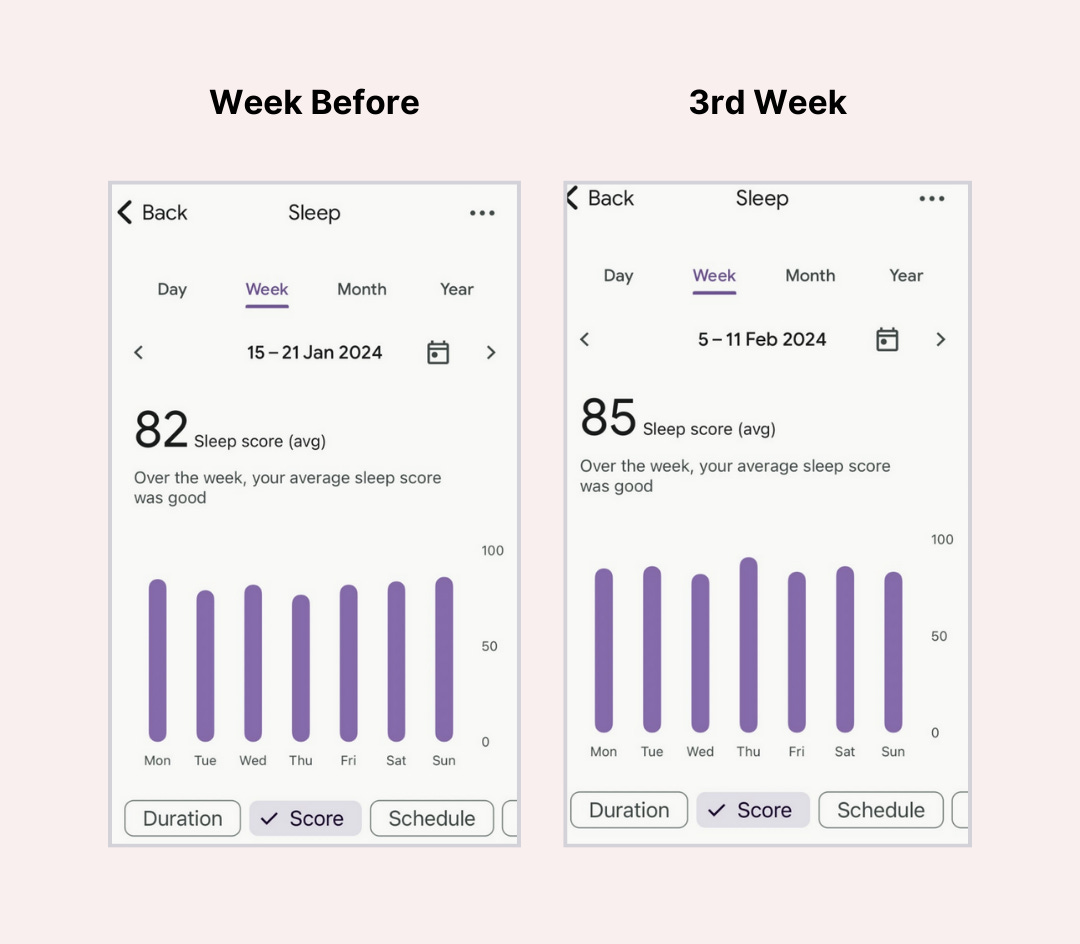I quit caffeine for 31 days. Here's what I learned
In January 2024 to February 2024 I did 31+ days going cold-turkey on caffeine to better control my energy and improve my health.
Hey folks.
In January 2024 to February 2024 I did 31+ days going cold-turkey on caffeine to better control my energy and improve my health, ‘no-caf.’ It was a pretty rough experiment (you’ll see why soon) so I wanted to write my notes on the experience here so the agony didn’t go to waste.
Why go no-caf?
A lot of people are interested in no-caf and I got into the idea based on watching a video by Alex Becker (link).
I thought about it and decided to try it. For the record, here’s a recap of why I wanted to go no-caf:
Stress. It’s apparently linked to physiological and psychological stress.1 So, would you purposely drink something that makes you feel stressed?
Uneven energy. I’d get energy crashes and shakes after drinking coffee. I wanted to have a more even distribution of energy.
Poor sleep. It’s pretty clear that caffeine and disrupt your sleep, which is a top 3 health lever of the sleep, diet, exercise trifecta.
Addictive.2 I like the idea of limiting myself from things that are addictive in general. Which is partly why I don’t drink alcohol. I’m obviously failing that with sugar, though.
Dopamine adjustment. I was trying to reduce artificial highs caused by things like coffee, so that the dopamine released from doing productive things like work, which are naturally relatively lower, is instead relatively higher.
Essentialism. A bit of a moral appeal, but my grandpapy didn’t need no coffee everyday just to do a honest day’s work. Why should I?
Quite a few reasons. Actually.
📅 Timeline
Day 1-3. Started strong. But it was pretty clear that I was heavily addicted and came down with typical withdrawl symptoms after a single day with frequent, long headaches and dizziness. I also had the overwhelming urge to smugly bring up how I’m doing no-caf to friends…
But I also noticed some key benefits happening:
Less shaky when hungry.
My sleep score improved from ~82 to ~87, the highest ever according to my Fitbit.
I also talked to a mate who was quitting it too for mutual support. He sent me a Reddit thread where someone explains it took them a year to get back to normal (link). Nice.
Day 4-30. A blur of worsening than gradually reducing headaches ❌. Working each day feels very sluggish to get into, but once I’ve started it’s easier to maintain into the early afternoon.
Day 31+. I question whether it was really worth it. I noticed feeling like a daily injection of happiness is missing. I’m getting frustrated that my work is too slow to engage in every morning.
✅ But on the positive side:
Headaches are gone at this point.
Sleep improved marginally 5% on average, and stayed that way.
Still less hunger "shakiness" come lunch time.
Avoiding caffeine got me drinking healthier stuff instead, like a daily ginger tea.
I felt consistent energy from the morning to early evening.
Surprisingly, my "digestion" had totally changed, too. To 2-3x per day (is this normal?!).
For the downsides, I have been told by professionals this is temporary as I get back to homeostasis. Encouraging, almost.
Would you make the trade?
Quitting no-caf
There was a point after the 31st day I just gave up.
I needed to power through the day and my natural energy wasn’t up to the task. The first cup back was glorious, as you might expect. A higher-high than usual.
Thinking at the time - my sleep had not drastically improved to be that noticeable and the other benefits did not outweigh the benefits of that daily boost of both happiness and energy. So I swung back to caffeine again.
Reasons for caffeine
Now, I’m happy to continue with caffeine. These are the reasons:
Motivation control. Having sustainable motivation is not as useful as having control over your motivation. Sometimes you really need to push yourself and if I rely on natural willpower alone it’s just way harder than it needs to be.
Energy control. Similar to motivation, sometimes you feel “the mind is willing but the body is weak.” Using caffeine gives me more control over not just my willpower but my physical ability to amp up to the tasks I need done.
Enjoyment. I think most people who drink coffee can attest to that daily spike of happiness than comes from the world’s most popular drug.
There does seem to be a lingering drawback though. I can say I still feel an elevated sense of stress and nerviness that I didn’t while off caffeine.
So that was my journey.
Has anybody else tried this?
Adcock, A. (1990). Caffeine effects on cardiovascular and neuroendocrine responses to acute psychosocial stress and their relationship to level of habitual caffeine consumption.. Psychosomatic Medicine, 52, 320–336. https://doi.org/10.1097/00006842-199005000-00006.
Olekalns, N., & Bardsley, P. (1996). Rational Addiction to Caffeine: An Analysis of Coffee Consumption. Journal of Political Economy, 104, 1100 - 1104. https://doi.org/10.1086/262054.



